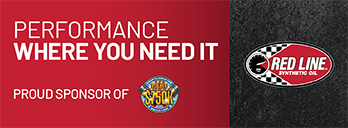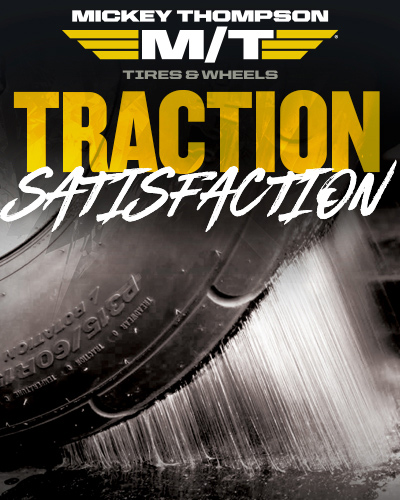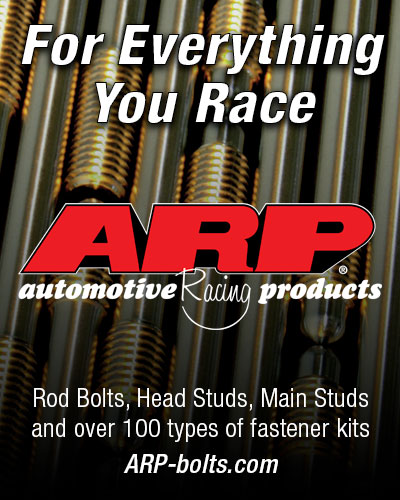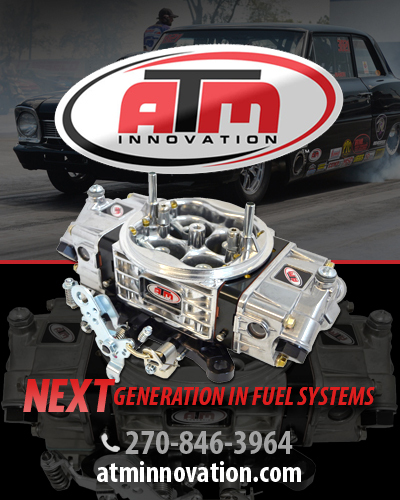BORDER CROSSING CONCERN?
Doug Foley owns a two-car
team that competes on the IHRA Knoll Gas Nitro Jam tour. A recent incident has
him concerned following the IHRA Canadian Nationals in Grand Bend, Ont., and he
wants to give his fellow racers a heads up. The source of his concern is a
possible change in border-crossing procedure.
Nothing appears on the
IHRA website announcing a change in policy.
“Our drivers were told
that from now on we were going to have to be bonded,” Foley said. “We were told
that a broker was going to be necessary for the paperwork required. You will
need to be bonded and all of that will need to be done before you get to
The IHRA’s Skooter Peaco
confirmed that a few teams and racers had been stopped before and after the
Grand Bend event. He even added he was one of them.
Foley, who owns the
dragster driven by Terry McMillen, said the IHRA always provided the teams with
a letter that was intended to make the border crossing as easy as possible.
“It was the understanding that we were coming in to put on a show and once we were done, we were leaving,” Foley said. ‘We could get out without paperwork or permits or any of that. They told us that was no longer allowed.”
Racers warned about change in procedure following Grand Bend event; IHRA says business as usual
Doug Foley owns a two-car
team that competes on the IHRA Knoll Gas Nitro Jam tour. A recent incident has
him concerned following the IHRA Canadian Nationals in Grand Bend, Ont., and he
wants to give his fellow racers a heads up. The source of his concern is a
possible change in border-crossing procedure.
Nothing appears on the
IHRA website announcing a change in policy.
“Our drivers were told
that from now on we were going to have to be bonded,” Foley said. “We were told
that a broker was going to be necessary for the paperwork required. You will
need to be bonded and all of that will need to be done before you get to
The IHRA’s Skooter Peaco
confirmed that a few teams and racers had been stopped before and after the
Grand Bend event. He even added he was one of them.
Foley, who owns the
dragster driven by Terry McMillen, said the IHRA always provided the teams with
a letter that was intended to make the border crossing as easy as possible.
“It was the understanding
that we were coming in to put on a show and once we were done, we were
leaving,” Foley said. ‘We could get out without paperwork or permits or any of
that. They told us that was no longer allowed.”
Peaco said the issue will
be broached on the IHRA’s website today. A new letter will be posted at www.ihra.com .
“We have a new letter and plan
to post it online soon,” Peaco said.
Peaco said he wondered if
other events in the area might have had a bearing on what normally is a smooth
transition for drag racers.
“When we were crossing
over, it was the same time they were having a big Def Leppard/Aerosmith concert
and all the questionable individuals were with me in customs. They [customs]
were pulling over people right and left. Then on the way out, they were looking
for a guy who had just murdered two people down the road from the track.
“They [police] came to the
track looking for the guy because they were acting on a tip that he was there.
They were told that he was going there to ride across the border with one of
the teams. They gave everybody the probe coming back. When Bruce Litton gets
it, you know something is wrong.”
Peaco said the IHRA does
work with a broker set aside just for that but many of the teams decline to use
them. Their broker is the one preparing the information for the teams to pass
through the border for the Cayuga,
“The thing is when you
talk to someone about it [crossing], you get three different answers and that’s
why we have used the same broker,” Peaco said. “She hooked us up with the
customs agent who drafted our initial pre-clearing process. There is some
bonding required. That’s more for the pro teams than anyone else.”
The real issue, one that a
racer who got stopped at the border confirmed, is how Canadian officials view
the rigs coming to the race. Will they deem them recreational vehicles or
commercial? That’s where the issue could be.
If it’s commercial, Foley
said many of the smaller teams might have a tough time crossing the border.
“I haven’t publicized my
run-in a lot,” Foley said. “But we don’t want to see any teams get turned
around at the border. They [the teams] need to start working with the IHRA to
make sure there are no problems in crossing.
“If this is a change in
policy then we need to get this word out there to the teams, so they can
prepare. You’re going to have to deal with the added expense. There’s no way
around it.”
Peaco says the situation
can be as confusing to the IHRA as it is to the racers.
“Depending on where you go
and who you get is whatever their interpretation is,” Peaco said. “If you think
about it when we had Grand Bend during non-peak season, we never had a problem.
We went peak season and when combined with the concert is what caused our
problems.”
Peaco said of the
400-something teams that crossed only a dozen teams mentioned a problem.
“It’s not a matter of
policy change,” Peaco said. “It’s just a matter fo having your house in order.
That has never changed.”




































